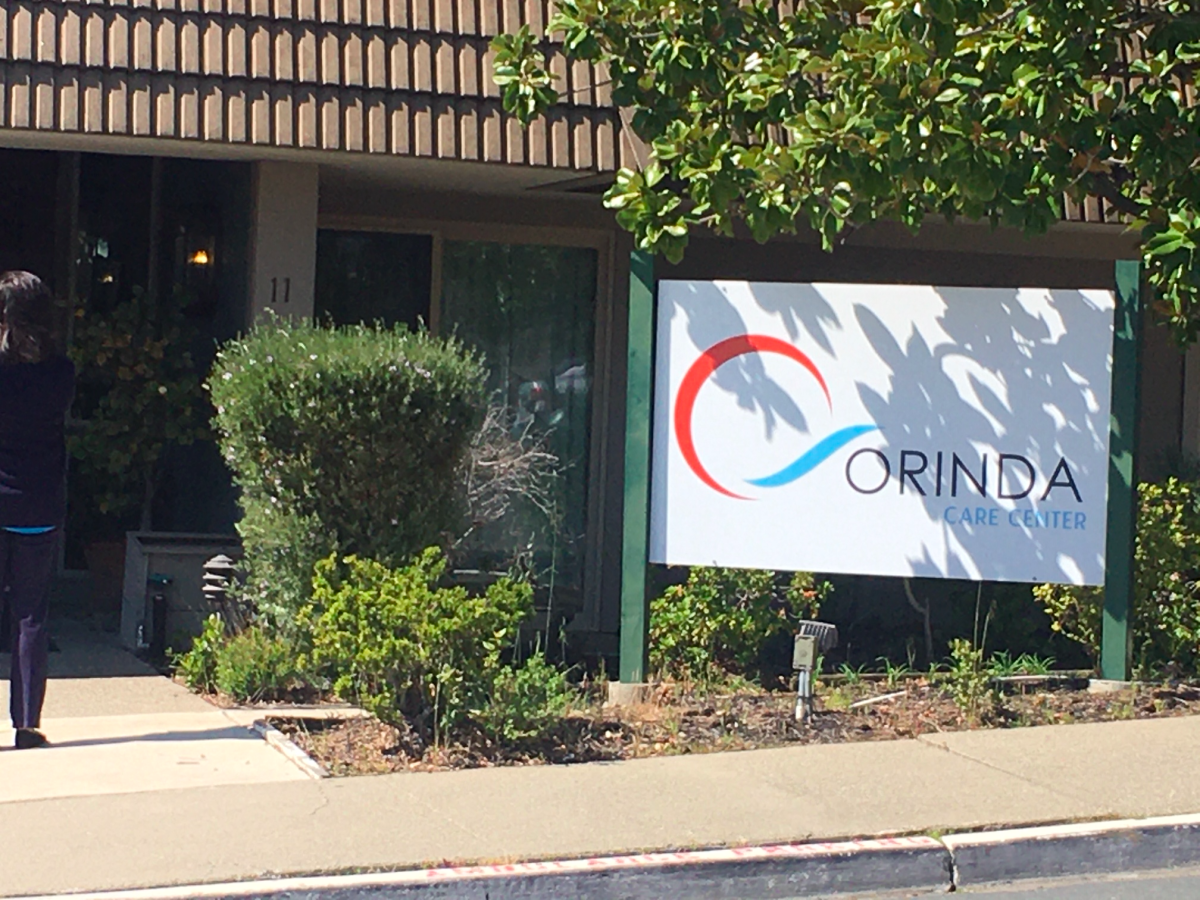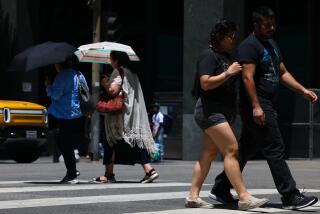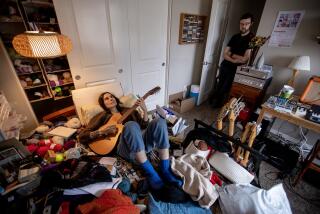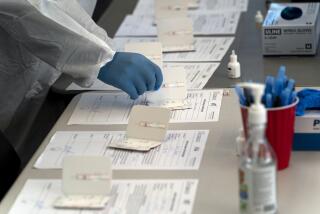I’m a doctor. If this 81-year-old can endure the coronavirus, you can too

- Share via
Joe, a semi-retired 81-year-old, never expected his Italy guys’ trip to thrust him into the front ranks of COVID-19 patients. Joe’s story goes against the grain of news about the coronavirus now gripping the world and providing epidemiologists and public health experts with the challenge of their professional lives.
Joe is a patient of a medical colleague, and he and his wife gave me permission to tell their story. It started with a ski vacation for 14 friends, united by their connections to the real estate industry, who flew from Sweden, San Francisco and Los Angeles to a rendezvous in Munich. From Germany they traveled to Selva di Val Gardena, a ski resort in the Dolomite mountains of northern Italy. Arriving on Feb. 21, they began their usual regimen of morning ski runs and afternoon lounging.
Before long, they could tell something was off. Joe’s friend Peter was the first to develop a cough and general malaise. Some of the others soon noted more shortness of breath than usual on the slopes. In the evening, normally robust appetites faded. By the time the trip ended, Peter was seriously ill with a cough and fever. He was hospitalized in Munich with pneumonia. Although Joe felt unwell, he was able to continue to Los Angeles.
By the time Joe arrived at LAX on March 1, he realized that he might have been exposed to COVID-19. He called Dr. Jonathan Weiner, his primary care doctor, from the airport. Weiner, aware of the public health implications of a potentially infectious patient in a public setting, directed Joe to head home and arranged follow-up care there with the Los Angeles County Department of Public Health.
Joe tested positive for COVID-19 as have all the other trip participants. He has no idea how they could have been exposed, although he thinks back to a crowded tram ride. Since testing positive, Joe has been isolated from all direct interpersonal contact. Confined to a bedroom at home, he communicates with his wife, Barbara, by cellphone, text and Facetime. Barbara is quarantined too. Because test kits and lab time remain limited, and because she exhibits no symptoms, she hasn’t been tested and she won’t be unless she develops a fever or cough.
The couple depends on family and friends to drop off food. Barbara leaves meals for Joe on a tray at his bedroom door, then heads to another part of the house to text him. Joe, mask in place, opens the door, takes the tray and closes the door again. She carefully disposes of the paper plates, wearing gloves. The isolation routine will stay in place for 14 days or until Joe tests negative twice.
Joe was the oldest trip participant but he has weathered COVID-19 better than most, with nothing worse than nasal congestion. He hasn’t had a fever at all, just a cough, which I heard occasionally during our phone discussions. Why would an 81-year-old like Joe sail through an encounter with the same virus that led to five friends being hospitalized and with Peter remaining in critical condition in a Munich intensive care unit? Joe isn’t certain; he doesn’t know if Peter or the others had underlying health problems.
COVID-19 is simply too new for us doctors to draw conclusions, but a few things stand out about Joe. His lifestyle is far healthier than most. He walks on a treadmill for an hour a day and works out with a trainer three days weekly. He has never smoked, drinks alcohol minimally and has a healthy diet. He had heart bypass surgery some years ago, but other than that, he’s never had a serious illness. Joe generally feels good too: “The only reason I know I’m getting older,” he told me, “is that people seem to call me ‘sir.’”
Joe is reluctant to ascribe what may just be good fortune to his lifestyle, but his experience offers lessons for everyone as the coronavirus spreads. First, despite our limited understanding of this disease, we can say that most cases of COVID-19 will prove mild, like Joe’s. Second, although the virus poses a frightening reminder of the power of nature to disrupt our lives, our own behaviors surely still make an important difference.
Nonsmokers fare far better with respiratory illnesses such as COVID-19. For many who may become exposed, it’s not too late to quit now and benefit prior to potential exposure. In addition, Joe’s decision to call his physician rather than going to an emergency facility may have saved numerous potential exposures. And he is carefully cooperating with isolation, a challenging but critical intervention to reduce the impact of the epidemic.
We can be certain that more people are infected with COVID-19 in Los Angeles than have been tested, and more will be getting ill. We also know that minding our health — and the recommendations to wash hands and maintain “social distance” — will prove the best way to limit the reach and impact of the disease.
As a medical doctor, I’m inspired by Joe’s upbeat attitude and his ability to shrug off a potentially lethal virus. It shows that among the older population and the vulnerable, like most others, this infection can be less a serious illness and more a matter of management and control.
Dr. Daniel J. Stone is an internal medicine and geriatric specialist in Los Angeles.
More to Read
A cure for the common opinion
Get thought-provoking perspectives with our weekly newsletter.
You may occasionally receive promotional content from the Los Angeles Times.









